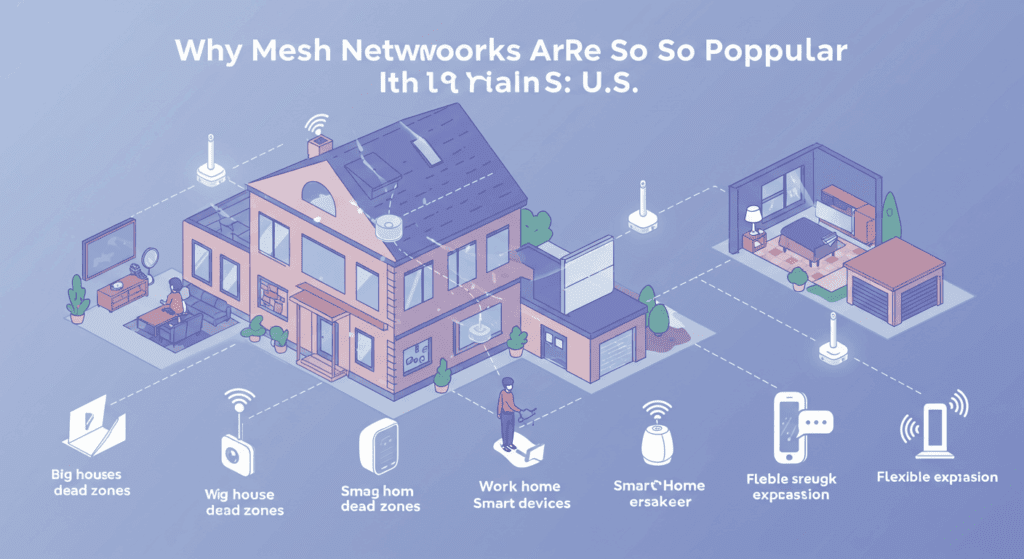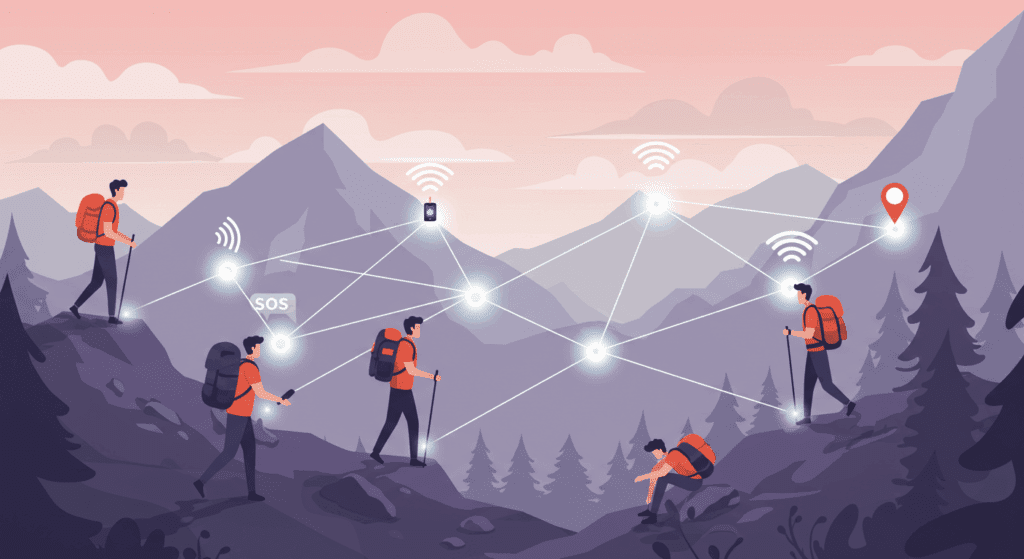Mesh Networks Taking Off: From Meshtastic to Outdoor Adventures
Mesh Networks
The Meshtastic project has been exploding in popularity across the United States, and it’s easy to see why.
This mesh network technology lets devices communicate directly with each other without needing internet or cell towers.
As outdoor enthusiasts around the world are getting more interested in off-grid communication, mesh networks are
becoming a game-changer for hikers, campers, and adventure seekers everywhere.
1. What Exactly is a Mesh Network?
1-1. Getting the Basics Down
A mesh network is like a spider web of connected devices that can pass messages along to each other. Instead of
relying on a central tower or server, each device acts as its own little router, helping to relay messages to
other devices in the network.
Think of it this way: if you want to send a message from point A to point C, but they can’t connect directly,
the message can hop through point B instead. Every device in the mesh network works together to keep
everyone connected.
1-2. How It’s Different from Your Phone
Your regular cell phone needs those big towers to work – that’s why you get “no signal” when you’re deep in the
mountains or out in the middle of nowhere.
But mesh networks don’t need any towers at all.
The devices talk directly to each other, so you can stay connected even when you’re completely off the grid.

2. Why Meshtastic is Blowing Up in America
2-1. What Makes Meshtastic Special
Meshtastic is an open-source mesh network platform that uses pretty affordable hardware to create long-range
wireless communication.
It runs on LoRa (Long Range) technology, which means you can send messages across several kilometers without
breaking a sweat.
What’s really cool is that it’s designed specifically for emergency communication and remote areas where regular
networks just don’t reach.
2-2. Perfect Timing for Growth
There are a few reasons why Meshtastic has taken off like wildfire in the US. Natural disasters are becoming more
common, there are huge areas with zero cell coverage, and people are getting more concerned about privacy.
Since mesh networks are decentralized, there’s no big corporation or government agency monitoring your conversations.
That freedom really appeals to a lot of folks.

3. How Outdoor Enthusiasts are Using Mesh Networks
3-1. Hikers’ New Best Friend
Mountain lovers and trail hikers are discovering that mesh network devices are becoming essential gear.
When you’re hiking in groups and someone gets separated, or if there’s an emergency and your phone has no bars,
these devices can be lifesavers.
Many hiking clubs are already moving beyond traditional walkie-talkies and embracing mesh network
technology as their go-to communication solution.
3-2. Campers Getting Connected
As camping becomes more popular, especially family camping, there’s a growing need for reliable communication
in remote locations.
Parents want to stay in touch with their kids when they’re exploring the campground, and mesh network devices
are perfect for this.
They work over much longer distances than walkie-talkies and can connect with smartphone apps,
making them super user-friendly for the whole family.
4. Real-World Uses That Actually Matter
4-1. Staying Safe on the Trail
When you’re hiking with a group and using mesh network devices, everyone can stay in contact even if you spread
out along the trail.
Many of these devices also share GPS locations, so if someone gets lost, the group can find them quickly.
You can also share weather updates, trail conditions, or emergency alerts instantly with your whole hiking party.
4-2. Campground Communication
Even in large campgrounds where your tents might be spread out over a big area, mesh networks keep everyone
connected. Kids can go to the playground or explore other areas while parents can still reach them easily.
Plus, you might end up connecting with other campers and sharing tips about the best fishing spots or
hiking trails in the area.
4-3. Emergency Preparedness
When hurricanes, earthquakes, or other disasters knock out cell towers and internet, mesh networks
can literally be lifelines.
If neighbors set up a network ahead of time, they can check on each other and coordinate help during emergencies.
5. Things to Think About Before Jumping In
5-1. Know Your Local Rules
Before you start using mesh network devices, make sure you understand the radio frequency regulations in your area.
Different countries have different rules about which frequencies you can use and how much power your device
can output.
5-2. Picking the Right Gear
There are tons of different mesh network devices out there, from basic text-only units to more advanced ones with
GPS and weather sensors. Think about what you actually need and choose something that fits your budget and use case.
Wrapping It Up
Mesh networks aren’t just some futuristic tech anymore – they’re here, they work, and they’re making outdoor
adventures safer and more connected. Whether you’re a weekend warrior hitting the trails or a family
that loves camping under the stars, these devices are worth checking out.
The world is getting more connected every day, and now that includes places where your phone has never worked before.
Pretty cool, right?
If there’s anything about Korea you’re curious about,
feel free to leave a comment or contact me through the blog.
I’ll pick the best topics and post them here for everyone to enjoy!
Wishing you a beautiful and joyful day today.
[Follow the thread]








